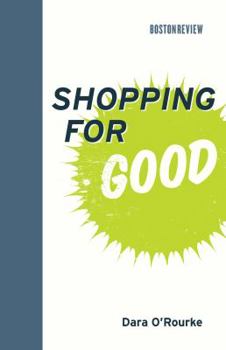Shopping for Good
(Part of the Boston Review Books Series)
Where public policy fails, can consumer choices lead the way to more ethical and sustainable production practices?
"Buy local," "buy green," "buy organic," "fair trade"--how effective has the ethical consumption movement been in changing market behavior? Can consumers create fair and sustainable supply chains by shopping selectively?
Dara O'Rourke, the activist-scholar who first broke the news about Nike's sweatshops in the 1990s, considers the promise of ethical consumption--the idea that individuals, voting with their wallets, can promote better labor conditions and environmental outcomes globally. Governments have proven unable to hold companies responsible for labor and environmental practices. Consumers who say they want to support ethical companies often lack the knowledge and resources to do so consistently. But with the right tools, they may be able to succeed where governments have failed.
Responding to O'Rourke's argument, eight experts--Juliet Schor, Richard Locke, Scott Nova, Lisa Ann Richey, Margaret Levi, Andrew Szasz, Scott Hartley, and Auret van Herdeen--consider the connections between personal concerns and consumer activism, challenge the value of entrusting regulation to consumer efforts, and draw attention to difficulties posed by global supply chains.





